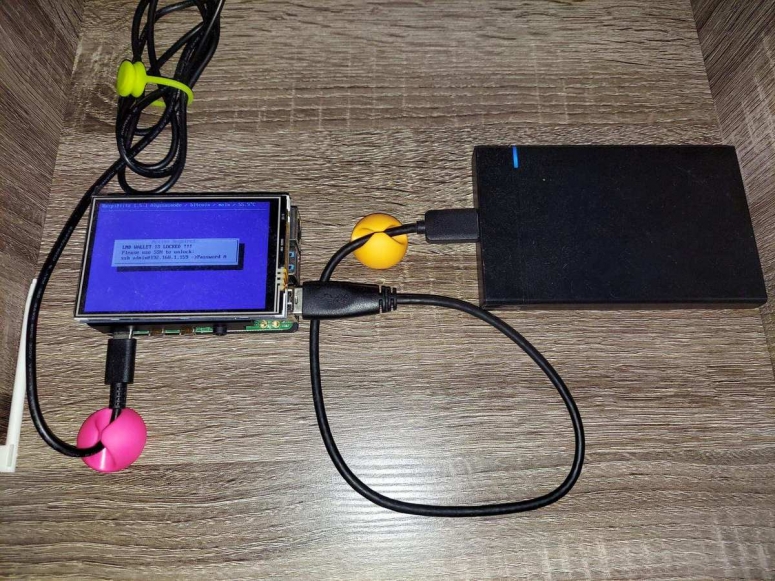Six Reasons Why You Should Run Your Own Bitcoin Node

Let me quickly explain that a Bitcoin Node is any computer that runs a piece (Bitcoin Core), which performs important tasks:
The entire Bitcoin blockchain must be kept by your Bitcoin node. It must connect to other nodes to form a network of communications, which propagates transactions. Transactions are kept in an’mempool, i.e. the queue of transactions that will be added to the next block. It must verify that all blockchain additions are valid and reject any that aren’t. It will give details about the blockchain to any software that requests them, such as wallets. It will also provide a copy to any new node who wants to join. Independently, the new node verifies that each transaction in the copy it has received is valid. It doesn’t trust the connected node.
You first need to download Bitcoin Core software. Then let it copy the blockchain from all nodes. Finally, your node verifies each block. The node is then turned on and new blocks are received approximately every 10 minutes. These blocks include transactions from the mempool. Your node will verify that the block is valid and add it to the copy of the blockchain.
Not because everyone rejects it and not because everyone copies each other’s neighbor, but because the block violates the rules of the Bitcoin Core software. Everyone else running the same software will reject the dodgy blocks.
Your Bitcoin wallet doesn’t keep a copy the blockchain and is often separate from Bitcoin Core (although it does have a wallet feature). Your keys are all that is kept in your wallet. It must ask a Bitcoin node: “Hey Mr. Node. This address of mine, does this have any bitcoin? Although technically this is not correct, it’s sufficient for now.
You don’t have to ask anyone else what their version of Bitcoin Core is doing. You have your own copy and can trust others. Your wallet can request your copy of the Bitcoin blockchain. This is the technical and crucial part.
Now that you have read the preamble, let me explain why it’s important to own your node.
Reason 1
Your wallet will tell you the bitcoin balance of each address. It then asks a random public Bitcoin node which addresses have what balance. The results are displayed and you can see the total amount of bitcoin in your wallet. Even empty addresses that you haven’t used are questioned. Some of these nodes are run by surveillance companies. “What the Heck?” It’s true.
You are giving your IP address to a random entity (possibly a surveillance company), as well as your Bitcoin wallet. This wallet will contain all of your current and future addresses and all balances. This information can be dangerous because it is given to surveillance companies. This data could be leaked to surveillance companies either intentionally (to the government upon request) or unintentionally, to hackers. Governments may target Bitcoiners with heavy wealth taxes or confiscation, as the US government once did for gold with order 6102 in 1933, and hackers may target you to extort or trick you out of your bitcoin.
Reason 2
You can verify for yourself that you are receiving genuine bitcoin.
A technically skilled buyer could manipulate the node to which your wallet connects when you sell something. You could be sent counterfeit bitcoin and your wallet will believe it has received real bitcoin. Although this attack is unlikely, it’s not impossible. However, the fact that you can stop it by running a Node makes this type of attack very interesting and fruitless. This is what happens. Your Bitcoin wallet is tricked by a scammer to see the wrong blockchain from an attacker node. Your wallet believes you have been paid because he moves the fake bitcoin on that blockchain.
You may be scammed if you accept the counterfeit bitcoin as your final payment. In exchange, you might send goods. Your wallet will reveal that you have never received bitcoin once you connect to a legitimate Bitcoin node. Because the fake transfer was never made on the actual Bitcoin blockchain, your balance will be lower that you think it should be.
This can be prevented by connecting your wallet with a trusted node, or even better, connecting to your own node. The mantra of Bitcoiners is “Don’t trust, verify.”
This is similar to accepting gold as payment and then asking someone to use their XRF analyzer to verify that the gold you have received is genuine. It is impossible to know if the random buyer is honest or on their side.
“No trust?” you might be asking. Are you sure that I can trust Bitcoin Core? How can I be sure that it’s real? Both yes and no. You can verify the authenticity of the software that you have downloaded, but this article doesn’t address that.
Then you might ask yourself, “Am I trusting developers that genuine copy behaves as I expect?” You can trust them unless you wrote the software, read the code or paid someone to do so. Trust must be maintained, but it should not exceed a certain level. (Just to be clear, I don’t want to get in trouble with the Bitcoin mob. There is some trust because most people, including me, can’t or won’t understand the code. Trust is built by the fact that hundreds or even thousands of developers are reviewing the code to find errors and other problems before it is published. This is not an easy task to make changes to Bitcoin Core. To use the analogy of the gold XRF analyzer, it is unlikely that you will build one from scratch to verify whether your gold is real. That’s fine.
3 Reasons
Protect the Bitcoin rules against unwelcome changes, such as scarcity and block size.
If a group ‘powerful’ people gather together and decide to try to change how Bitcoin works (for instance, increasing the block size), then you have the option to choose not to upgrade your node to that new system, but to keep your current one. If you are more powerful than the majority, there will be two pools of people who run the same Bitcoin Core version and one pool that runs the modified version – a fork. This was how Bitcoin Cash was created. Although the new version was rejected unanimously, those who lost the war continued to run their nodes and mine bitcoin cash. Bitcoin cash was also owned by those who had bitcoin. One balance was available on the Bitcoin Blockchain for a given address and one on the Bitcoin Cash Blockchain.
You had no control over this war if you didn’t run your own node. You might have had your wallet connected to a Bitcoin Cash Node, and someone could have paid you with bitcoin cash rather than bitcoin. In this scenario, you might have had to give up your goods in order to get coins that weren’t consistent with your monetary policy.
Reason 4
This helps the network if you can run a node and leave it on for 24 hours per day.
There are more nodes than there are people running. This means that transactions spread faster for everyone and it is harder to shut down Bitcoin. Every single copy of Bitcoin must be destroyed in order to end it.
Reason 5
Be an Uncle Jim.
It may become too difficult for EVERYONE to manage their own node in the future, but we don’t want people to trust random nodes. It is possible that there will be a technical person within every social circle of trust (‘Uncle Jim) to whom people can connect their wallets. This small trade-off is better than connecting to random public Bitcoin Nodes.
You can learn how to run your own node and help others to do the same.
Reason 6
Street cred and coolness.
It’s super cool to run your own node and get a real appreciation for the power of Bitcoin. You will likely end up buying more.
Conclusion
It is now clear why you should set up a node. There are many ways to do this. If you want individual help, see here. For the computer illiterate, help is available at www.bitcoin4boomers.com.



